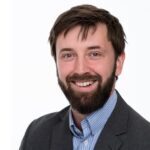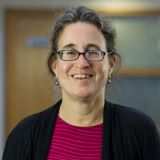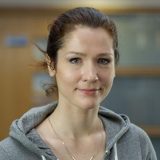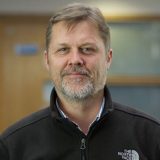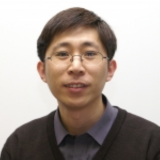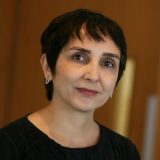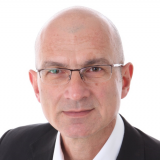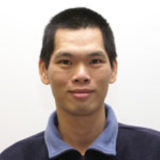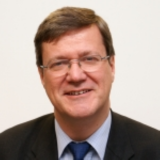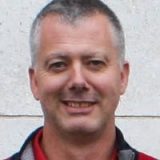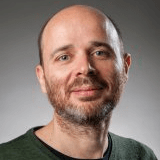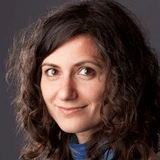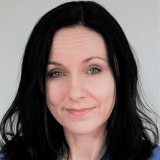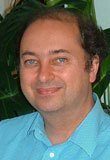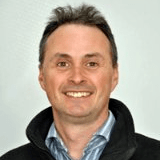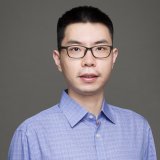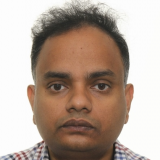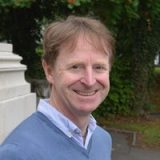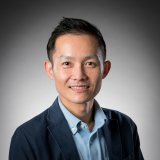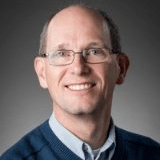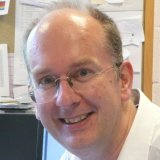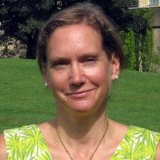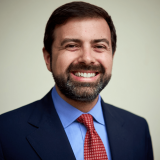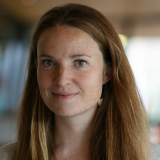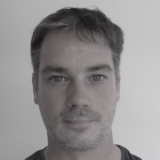Dr Peter Melville-Shreeve has worked in consultancy, startups and academic roles over the last decade. He works closely with the Chartered Institution of Water and Environmental Management’s (CIWEM’s) policy team to support sustainable water management systems and chair’s CIWEM’s Water Reuse Task & Finishing Group. Much of Peter’s early research focusses on rainwater management systems and the need for dual purpose designs – which can mitigate droughts and floods. His thesis highlighted the opportunities for Internet of Things technologies to be harnessed to reduce water demand AND manage stormwater flood risk. He consequently founded and exited a technology business which developed analytics and control systems to enable such technologies to be implemented at a range of scales.
lora fleming
Lora is the director of the Centre for Environment and Human Health and chair of oceans and human health at the University of Exeter Medical School. She is a board certified occupational and environmental health physician and epidemiologist with over 30 years of experience and expertise in environment and occupational exposures and human health research and training.
anne leonard
Anne’s research focuses on marine systems and epidemiology. She studies catchment-level processes contributing to the transmission of antibiotic resistant bacteria in coastal bathing waters, with a view to identifying mitigation strategies to reduce the spread of antibiotic resistant bacteria in the environment. She is particularly interested in recreational waters, transmission in coastal bathing waters and microbial genes associated with land uses and re-use of water and crop irrigation.
will gaze
Will research is in antimicrobial resistance in farmed and natural environments, including major elements of environmental sampling and wide-ranging analytical methodologies. This includes AMR evolution in the environment, using in situ and in vivo experiments, landscape scale dissemination of AMR and human exposure and transmission studies. Projects are divided into three main themes: ecology, evolution and public health perspectives. These map onto those identified in successive WHO, EU and UK AMR action plans facilitating interdisciplinary research approaches and joined up thinking.
Guangtao Fu
Guangtao’s research is focused on developing and applying new computer models, data analytics and artificial intelligence tools to tackle urban water challenges in water supply resilience, network leakage, flood risk, urban stormwater and wastewater management.
Raziyeh Farmani
Raziyeh specialises in urban water systems modelling, water resources management and asset management and has expertise in multi-objective optimisation of water networks. Her research interests covers evolutionary optimisation, artificial intelligence and data mining.
Slobodan Djordjevic
Slobodan researches the development and application of advanced methodologies and software tools for water management. These include: drainage and floods simulation, impacts of flooding, effects on human health and impacts on road transportation, resilience to diverse extreme weather events in the context of climate change, tidal energy extraction, water quality modelling, river and coastal engineering, water-food-energy nexus, cascading effects between water, waste, energy, transportation and other infrastructure systems, nature-based solutions, and drought risk management.
Albert Chen
Albert’s research focuses on water and human environment systems. Particular focus is on: hydraulic modelling, urban drainage, flood forecasting, innovation technology applications, water-food-energy-ecosystems nexus, climate change impact on critical infrastructure, prediction of water-borne disease, hazard impact and cascading effects assessment, and mitigation and resilience strategies.
DAVID BUTLER
David’s research area is urban water management, including sustainable and resilient water systems, integration and control and water-energy-carbon interactions.
Rupert Perkins
Rupert is a specialist researchers in algal photophysiology and productivity; taste and odour compounds in reservoirs; catchment management; variable chlorophyll floursecence and sediment/water column biogeochemistry.
Pedro Estrela
Pedro’s research focuses on the development of label-free electrical biosensors and chemical sensors for a wide range of applications such as medical diagnostics and environmental monitoring. His research interests include label-free electrical detection of biomolecular interactions, biologically sensitive field-effect devices, detection of DNA, proteins, bacteria, cells, ions and small molecules, electrochemical impedance spectroscopy of biological systems, use of solid state devices in aqueous environments, surface biofunctionalization, electronic addressing of microarrays, nanobiosensors and microfluidics.
Mirella Di Lorenzo
Mirella’s expertise lies at the interface of bioelectrochemistry, microengineering, microfluidics, sensing technology and material science. Her work addresses development challenges such as the water-energy-food security and global health, by developing eco-friendly and sustainable solutions affordable to all. Her research focuses particularly on the development of innovative biological fuel cell (BFC) designs for either energy harvesting, water quality monitoring or healthcare applications and on low-cost designs that can lead to devices affordable everywhere in the world. As such, she explores the uses of recyclable, biodegradable and low-cost materials.
Jannis Wenk
Jannis’ research investigates both physical and chemical water treatment, including developing more efficient technologies for gas transfer, investigate novel types of process combinations in engineered and nature-oriented treatment scenarios, such as constructed wetlands, and to further explore oxidative water treatment for example, ozonation, UV-light and radical induced processes as an important step to remove aqueous contaminants, pathogens and avoid spread of antimicrobial resistance. Current research in his group also investigates fate of microplastics in constructed wetland and separation technologies for microplastics.
Barbara Kasprzyk-Hordern
Barbara’s research focuses on environmental pollution, environmental epidemiology, water quality/water treatment and analytical chemistry. Barbara is particularly interested in water pollution and novel technologies used to decrease contamination of water. Recent interests are related to urban water and human epidemiology.
Dave Gordon
Dave holds the posts of Professor of Social Justice, Director of the Bristol Poverty Institute and Director of the Townsend Centre for International Poverty Research at the University of Bristol. He provides research leadership for multidisciplinary poverty relevant research and advised the World Health Organisation on measurement issues concerning water and sanitation access and policy in low and middle income countries.
Michael Bird
Michael works on biochemical and food process engineering, interaction between surfaces and bioproducts (stainless steel equipment and in pressure driven synthetic membrane systems), fouling and cleaning of surfaces. Mike’s work has a strong relevance to improving product quality, and reducing downtime, water and chemical consumption.
Junjie Shen
Junjie works on contaminant removal, capacitive deionisation and water treatment systems.
Sangaralingam Ahilan
Sangaralingam’s main interests are in sustainable urban flood risk management and the long-term performance of sustainable drainage systems, using detailed hydrological and hydro-morphodynamic modelling. He is also analysed SME behaviour in flooding aftermath.
Adrian Healy
A UKRI Future Research Fellow, Adrian’s research focuses on the resilience of people and places, urban groundwater and water resilience in sub-Saharan Africa.
John Chew
John’s research focuses on green cleaning (fouling and cleaning of surface layers in the food, textile, polymer processing, membranes and biotechnological industries). John works on the design and development of multi-functional adsorbent structures for air purification. John also studies the hydrodynamics and interfacial interactions of small scaled fluid particles with their continuous phase during the course of their movements in a piece of equipment (in processes such as wastewater treatment, fermentation and surface cleaning).
Jan Hofman
Jan’s research focuses on sustainable solutions in the water cycle, sustainable water management, and water security. Jan also studies the origin, fate and abatement options for emerging contaminants, thermal energy recovery from water and wastewater and resource recovery from wastewater and water treatment residuals. Finally, Jan’s work involves water demand and sewer modelling and water treatment.
Frank Marken
Frank’s research involves electrical chemistry and exploring the use of new materials. He also studies porous polymers / membranes to enable ion transport. Frank focuses on biological membranes and researching and mimicking their operation. Frank also work on desalination and the use of energy to remove salts.
Emma Emanuelsson Patterson
Emma analyses, optimises and designs chemical, biochemical and photocatalytic reactions and reactors. Her work combines in-situ reaction analysis techniques with traditional reaction investigation methodologies and mathematical analysis. In combination with reactor design, this allows for the development of novel and environmentally sustainable processes. Emma’s research includes 3D printing to develop an efficient, portable and low-cost continuous system for the treatment of contaminated drinking water. Emma also works in the optimisation of immobilisation protocols; investigation of reaction kinetics both experimentally and theoretically; reaction design and application of microbial tools (such as fluorescence in-situ hybridisation) applicable to wastewater treatment, food and the chemical and pharmaceutical industries.
Davide Mattia
Davide works in the application of membrane science – increasing their lifetime, reducing fouling, 3D membranes, chemical treatment and plant shutdowns. Davide’s research also focuses on the novel water treatment in waste and drinking water, e.g. photo-catalytic foams – a tertiary treatment to remove emerging contaminants (drugs etc). Finally, Davide studies the use of cellulose micro-beads to replace plastic in treatment systems.
Kate Baker
Based in the Centre for Water Systems, Kate is the lead for community engagement on two European Union funded projects, NextGen (Living Labs for Circular Economy in the Water Sector) and LOTUS (International Cooperation for Low-cost innovative Technology for water quality monitoring and water resources management for Urban and rural water Systems in India).
Andrew Hillis
Andrew’s research focuses on wave energy, dynamics and control systems and direct drive desalination.

